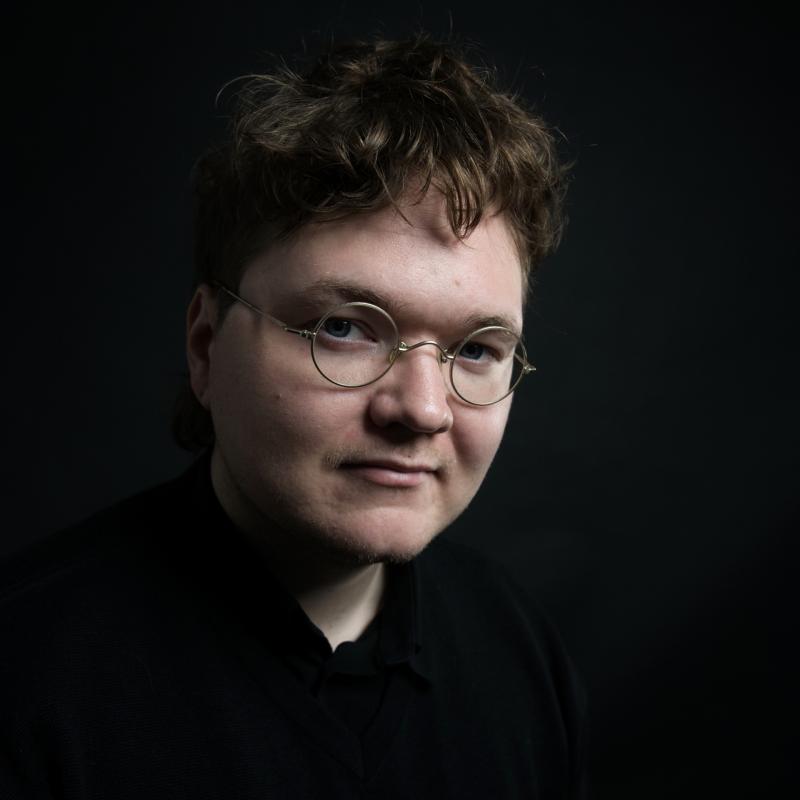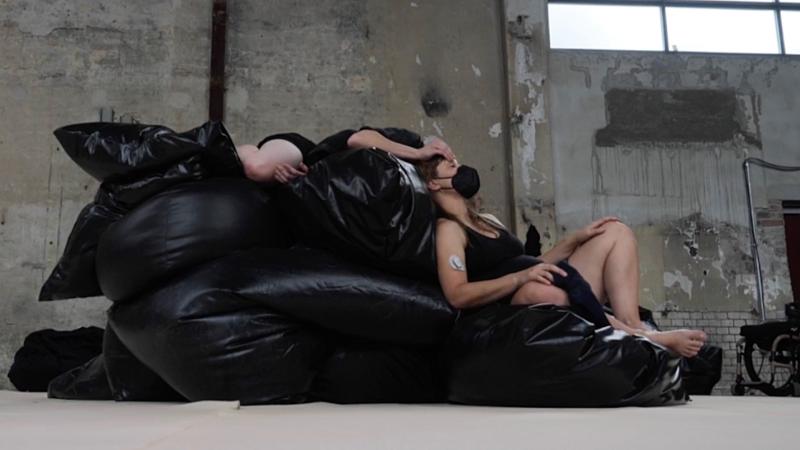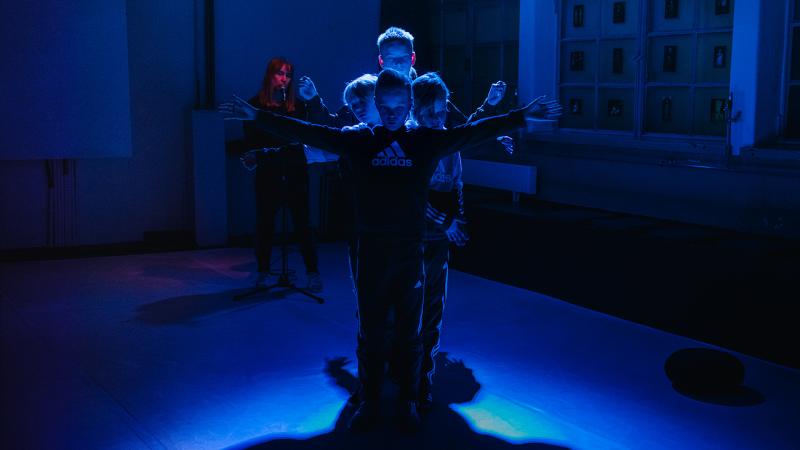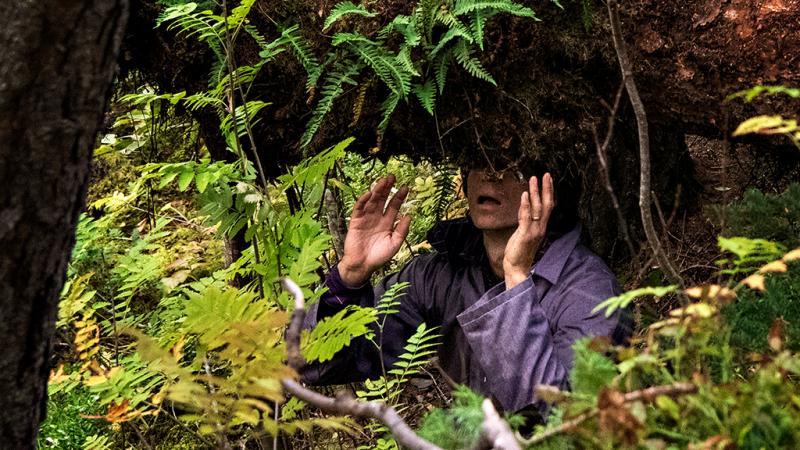Doctoral Programme of Artistic Research in Performing Arts
Deepen your expertise and become an artist-researcher at the Theatre Academy.
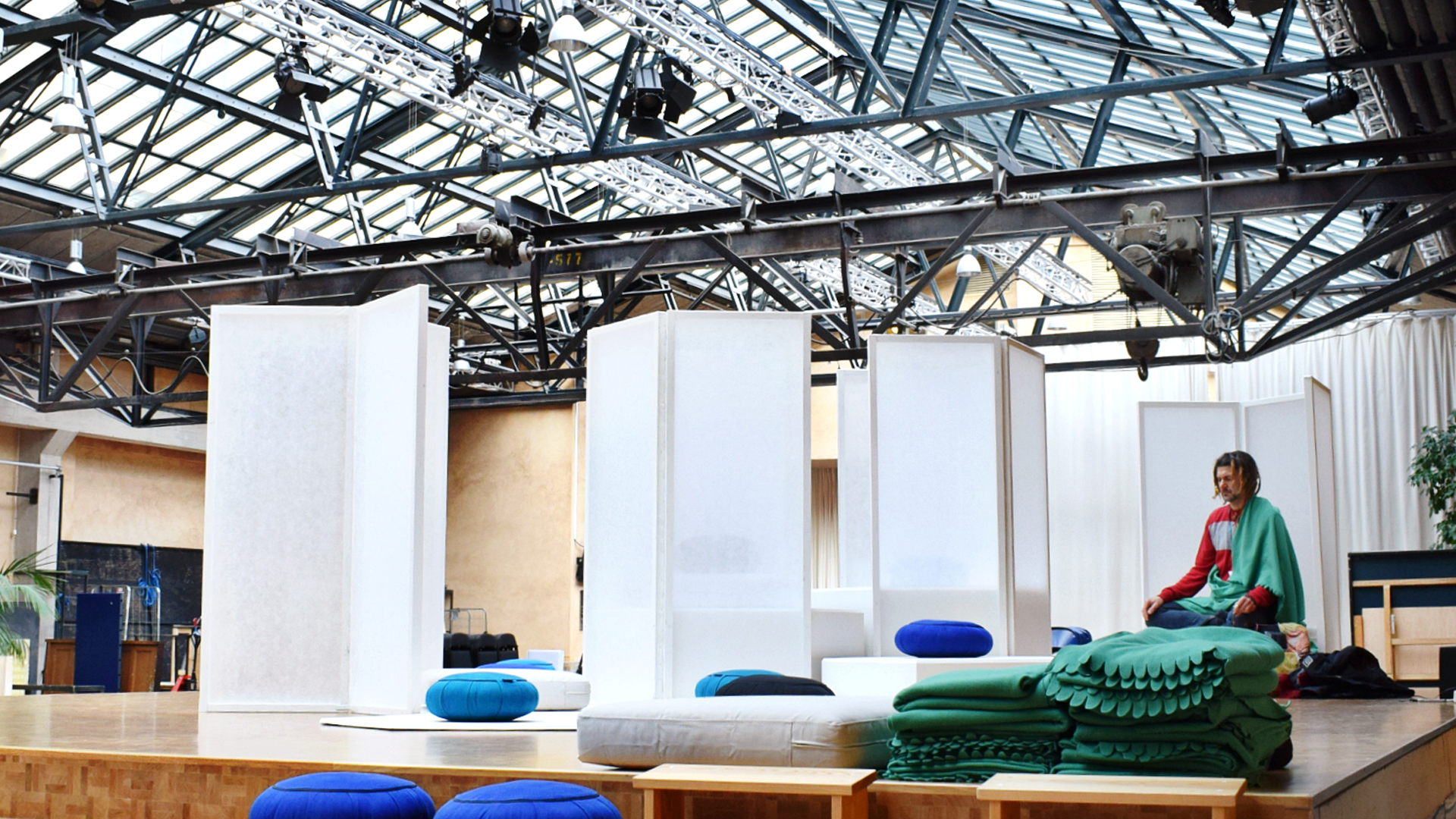
Why study here?
Doctoral studies at the Performing Arts Research Centre (Tutke) enable you to deepen your skills as an artist, researcher, pedagogue, and expert in all fields of Uniarts Helsinki’s Theatre Academy. We offer an inspiring research community, great international networks, and competent teachers. Artist-researchers develop and renew arts and engage in a diverse and critical dialogue with various actors in society.
About the studies
Doctoral candidates carry out an artistic research project on a topic of their choice in one of the fields represented by the Theatre Academy and acquire the skills and knowledge of an artist-researcher.
As experts in their respective fields, artist-researchers trained at Tutke increase our understanding of the arts, humanity and the world by developing art-making, pedagogy and research. They collaborate and engage in a critical dialogue with various operators in society. Their artistic practice leads to knowhow, skill and knowledge that can be used and applied both in the arts and in other fields and contexts of society.
Doctoral education improves artist-researchers’ ability to apply their skills as artists, researchers, pedagogues and experts.
Doctoral studies at Tutke entail multidisciplinary artistic research. Artistic and pedagogical practice is seen as a way of thinking and understanding, not as something that needs to be explained. Doctoral candidates learn to articulate, conceptualise, and theorise their practice-based artistic knowledge and questions that arise from it.
Artistic research in doctoral studies
Artistic research is academic research, which means that it produces knowledge that can be justified and assessed based on academic criteria and that aims at bringing about changes in matters and arrangements in the arts. Read more about how we define artistic research and learn about the mission and vision of the Performing Arts Research Centre Tutke.
Degree titles
Graduates from the doctoral programme complete a Doctor of Arts (Theatre and Drama), a Doctor of Arts (Dance) or a Doctor of Arts (Art and Design) degree. In practice, these three degrees do not differ from each other in any way. There are no separate intake quotas for studies leading to these degree titles, and education and the requirements for the doctoral research are exactly the same for all three degree titles.
The title of your degree depends on the research field that is the best match for the content of your research. Doctoral degrees can be completed in the following research fields, which correspond to the Theatre Academy’s master’s degree programmes.
- Comparative Dramaturgy and Performance Research
- Dramaturgy and Playwriting
- Writing
- Choreography
- Scenography
- Live Art and Performance Studies
- Acting (in Finnish)
- Acting (in Swedish)
- Directing
- Dance
- Dance Pedagogy
- Theatre Pedagogy
- Lighting Design
- Sound Design
If you find it hard to decide which degree programme’s research field your application represents, choose the degree programme that sounds like the closest match to your research topic.
Research fields in our doctoral programme
The fields that we represent in the doctoral programme are based on the master’s degree programmes offered by the Theatre Academy and their relevant focus areas. When you apply to the doctoral programme, you are expected to choose which field of the master’s programme selection your research represents.
The focus areas of the master’s programme’s content are what constitute the context in which you will carry out your research. With “context”, we mean that the Theatre Academy’s degree programmes and teaching and research staff’s expertise have an impact on whether the doctoral candidate can receive the support and supervision that they need for their research and whether their competence can be utilised in the teaching and supervision of the master’s degree programmes, too. If your plan is thematically far off from the content of the master’s degree programme you have chosen, you will not be able to operate fully in the Theatre Academy’s context.
During your doctoral education, the field of research you have chosen determines which degree programme you will collaborate with to varying degrees. That does not mean that you will study this field during your doctoral studies or that you could not participate in the activities of other degree programmes, too, during your studies.
Degree structure and curriculum
The scope of the degree is 240 credits. The degree consists of the doctoral research, which is worth 180 credits, as well as supporting studies, which are worth 60 credits and mostly completed during the first two years of studies to support the research.
Each academic year, a total of seven weeks of instruction are organised with about one-month breaks in between each week, and during each week of instruction, doctoral candidates must be present on campus. Teaching is provided mainly in English. Most of the courses are organised in cooperation with the doctoral programme of Uniarts Helsinki’s Academy of Fine Arts.
Completing the doctoral degree requires four years of full-time studying. Remote participation is possible for completing some of the studies, but for the most part, doctoral candidates are expected to complete their studies on site. You can live elsewhere due to family reasons, for example, as long as you are willing to travel to Helsinki during the weeks scheduled for instruction. There are 7-8 weeks of instruction per academic year. Taking on a salaried doctoral candidate position requires residing in Finland.
Doctoral thesis project
The doctoral research is worth 180 credits. It includes 1–4 research elements that are pre-examined and that can be artistic components, a written commentary, or combinations of these. Each doctoral candidate is usually assigned two supervisors with the highest expertise in their fields.
The artistic components can be performance-based or pedagogical projects, workshops, demonstrations or exercises. In them, doctoral candidates must demonstrate that they are able to address research questions through the means of art and consequently produce new knowledge.
The aim of the commentary is to make doctoral candidates reflect on the observations, experiences and problems that arose from the artistic components. The commentary can take many forms depending on the nature of the doctoral research. What is essential is that in their commentary, doctoral candidates state the subject and method of their research, describe new insights that they have gained and identify the research tradition associated with their work.
Each doctoral research is assessed in terms of the doctoral candidate’s expertise and ability to conduct independent research, produce new knowledge, communicate their thoughts clearly and participate in analytical discussions.
Collaborative doctoral research
Besides doctoral research carried out by an individual doctoral candidate, Tutke supports the option of carrying out a collaborative doctoral research project. In the admissions process, the applicants are treated as completely separate applicants, however. Applicants must submit their personal applications and all appendices that are required to the Studyinfo service individually.
Funding for doctoral studies
Tutke has limited possibilities to offer financial support to its doctoral students for conducting doctoral research. Each year, there are salaried doctoral candidates working at Tutke. Whenever these positions become vacant, they are announced separately. Doctoral candidates who have been admitted to the doctoral programme can apply for these positions once they become vacant. An employment relationship requires that the recruited person resides in Finland.
You can receive partial financial support for artistic productions and conference travel. Doctoral candidates are advised to apply for additional financial support independently from various sources.
Teachers and students
Our teachers are some of the best experts in their respective fields. In addition to the permanent teaching staff, the programme welcomes international top experts as guests on a regular basis.
Information about the admissions process
You do not need a supervisor to apply to the doctoral programme. We recommend that you do not contact any of the academic staff members of the Theatre Academy, because that would require them to disqualify themselves from the admissions process.
If you have any application-related questions, you can contact: teak.doctoral.admissions@uniarts.fi
Admissions guide for the programme
Uniarts Helsinki is one of the most sought-after places of studies in Finland. The number of applicants to the Theatre Academy’s doctoral programme varies. In the 2023 admissions, the programme received over 80 applications, and 8 applicants were admitted.
Learn more about doctoral studies
Target degree and length of study
Doctor of Arts (Dance), Doctor of Arts (Theatre and Drama), Doctor of Arts (Art and Design)
Application period
No admission in 2025. Next possible time to apply will be announced later.
Application languages
English, Finnish, Swedish
Read more about the language skill requirements
Tuition fee
There are no tuition fees in the doctoral programme.
Unit
The performing arts research centre (Tutke)
Ask about applying
teak.doctoral.admissions@uniarts.fi
Max Catalogue: Students and alumniWhy study here?
Doctoral studies at the Performing Arts Research Centre (Tutke) enable you to deepen your skills as an artist, researcher, pedagogue, and expert in all fields of Uniarts Helsinki’s Theatre Academy. We offer an inspiring research community, great international networks, and competent teachers. Artist-researchers develop and renew arts and engage in a diverse and critical dialogue with various actors in society.
About the studies
Doctoral candidates carry out an artistic research project on a topic of their choice in one of the fields represented by the Theatre Academy and acquire the skills and knowledge of an artist-researcher.
As experts in their respective fields, artist-researchers trained at Tutke increase our understanding of the arts, humanity and the world by developing art-making, pedagogy and research. They collaborate and engage in a critical dialogue with various operators in society. Their artistic practice leads to knowhow, skill and knowledge that can be used and applied both in the arts and in other fields and contexts of society.
Doctoral education improves artist-researchers’ ability to apply their skills as artists, researchers, pedagogues and experts.
Doctoral studies at Tutke entail multidisciplinary artistic research. Artistic and pedagogical practice is seen as a way of thinking and understanding, not as something that needs to be explained. Doctoral candidates learn to articulate, conceptualise, and theorise their practice-based artistic knowledge and questions that arise from it.
Artistic research in doctoral studies
Artistic research is academic research, which means that it produces knowledge that can be justified and assessed based on academic criteria and that aims at bringing about changes in matters and arrangements in the arts. Read more about how we define artistic research and learn about the mission and vision of the Performing Arts Research Centre Tutke.
Degree titles
Graduates from the doctoral programme complete a Doctor of Arts (Theatre and Drama), a Doctor of Arts (Dance) or a Doctor of Arts (Art and Design) degree. In practice, these three degrees do not differ from each other in any way. There are no separate intake quotas for studies leading to these degree titles, and education and the requirements for the doctoral research are exactly the same for all three degree titles.
The title of your degree depends on the research field that is the best match for the content of your research. Doctoral degrees can be completed in the following research fields, which correspond to the Theatre Academy’s master’s degree programmes.
- Comparative Dramaturgy and Performance Research
- Dramaturgy and Playwriting
- Writing
- Choreography
- Scenography
- Live Art and Performance Studies
- Acting (in Finnish)
- Acting (in Swedish)
- Directing
- Dance
- Dance Pedagogy
- Theatre Pedagogy
- Lighting Design
- Sound Design
If you find it hard to decide which degree programme’s research field your application represents, choose the degree programme that sounds like the closest match to your research topic.
Research fields in our doctoral programme
The fields that we represent in the doctoral programme are based on the master’s degree programmes offered by the Theatre Academy and their relevant focus areas. When you apply to the doctoral programme, you are expected to choose which field of the master’s programme selection your research represents.
The focus areas of the master’s programme’s content are what constitute the context in which you will carry out your research. With “context”, we mean that the Theatre Academy’s degree programmes and teaching and research staff’s expertise have an impact on whether the doctoral candidate can receive the support and supervision that they need for their research and whether their competence can be utilised in the teaching and supervision of the master’s degree programmes, too. If your plan is thematically far off from the content of the master’s degree programme you have chosen, you will not be able to operate fully in the Theatre Academy’s context.
During your doctoral education, the field of research you have chosen determines which degree programme you will collaborate with to varying degrees. That does not mean that you will study this field during your doctoral studies or that you could not participate in the activities of other degree programmes, too, during your studies.
Degree structure and curriculum
The scope of the degree is 240 credits. The degree consists of the doctoral research, which is worth 180 credits, as well as supporting studies, which are worth 60 credits and mostly completed during the first two years of studies to support the research.
Each academic year, a total of seven weeks of instruction are organised with about one-month breaks in between each week, and during each week of instruction, doctoral candidates must be present on campus. Teaching is provided mainly in English. Most of the courses are organised in cooperation with the doctoral programme of Uniarts Helsinki’s Academy of Fine Arts.
Completing the doctoral degree requires four years of full-time studying. Remote participation is possible for completing some of the studies, but for the most part, doctoral candidates are expected to complete their studies on site. You can live elsewhere due to family reasons, for example, as long as you are willing to travel to Helsinki during the weeks scheduled for instruction. There are 7-8 weeks of instruction per academic year. Taking on a salaried doctoral candidate position requires residing in Finland.
Doctoral thesis project
The doctoral research is worth 180 credits. It includes 1–4 research elements that are pre-examined and that can be artistic components, a written commentary, or combinations of these. Each doctoral candidate is usually assigned two supervisors with the highest expertise in their fields.
The artistic components can be performance-based or pedagogical projects, workshops, demonstrations or exercises. In them, doctoral candidates must demonstrate that they are able to address research questions through the means of art and consequently produce new knowledge.
The aim of the commentary is to make doctoral candidates reflect on the observations, experiences and problems that arose from the artistic components. The commentary can take many forms depending on the nature of the doctoral research. What is essential is that in their commentary, doctoral candidates state the subject and method of their research, describe new insights that they have gained and identify the research tradition associated with their work.
Each doctoral research is assessed in terms of the doctoral candidate’s expertise and ability to conduct independent research, produce new knowledge, communicate their thoughts clearly and participate in analytical discussions.
Collaborative doctoral research
Besides doctoral research carried out by an individual doctoral candidate, Tutke supports the option of carrying out a collaborative doctoral research project. In the admissions process, the applicants are treated as completely separate applicants, however. Applicants must submit their personal applications and all appendices that are required to the Studyinfo service individually.
Funding for doctoral studies
Tutke has limited possibilities to offer financial support to its doctoral students for conducting doctoral research. Each year, there are salaried doctoral candidates working at Tutke. Whenever these positions become vacant, they are announced separately. Doctoral candidates who have been admitted to the doctoral programme can apply for these positions once they become vacant. An employment relationship requires that the recruited person resides in Finland.
You can receive partial financial support for artistic productions and conference travel. Doctoral candidates are advised to apply for additional financial support independently from various sources.
Teachers and students
Our teachers are some of the best experts in their respective fields. In addition to the permanent teaching staff, the programme welcomes international top experts as guests on a regular basis.
Information about the admissions process
You do not need a supervisor to apply to the doctoral programme. We recommend that you do not contact any of the academic staff members of the Theatre Academy, because that would require them to disqualify themselves from the admissions process.
If you have any application-related questions, you can contact: teak.doctoral.admissions@uniarts.fi
Admissions guide for the programme
Uniarts Helsinki is one of the most sought-after places of studies in Finland. The number of applicants to the Theatre Academy’s doctoral programme varies. In the 2023 admissions, the programme received over 80 applications, and 8 applicants were admitted.
